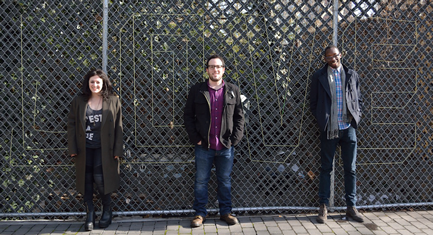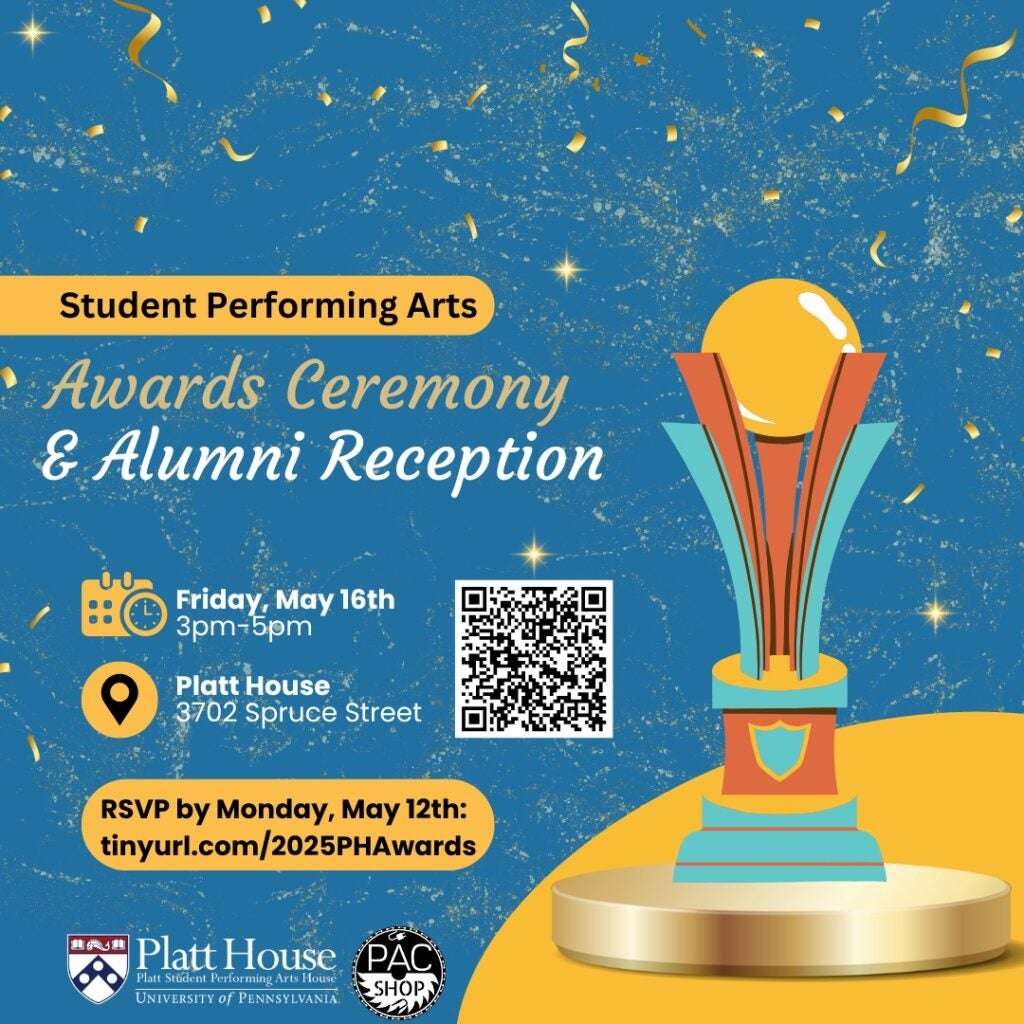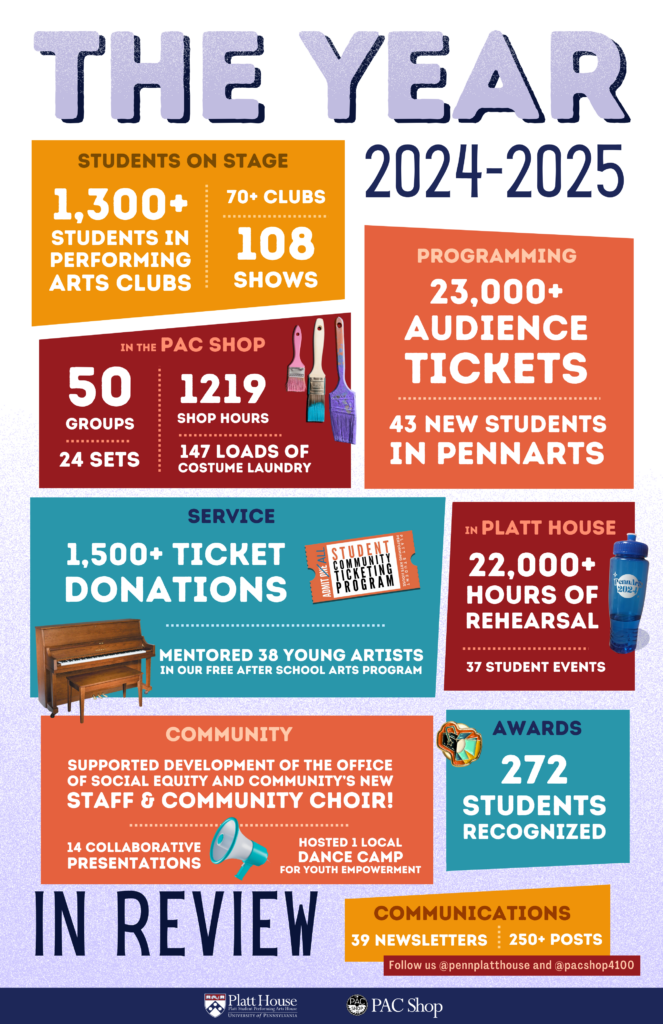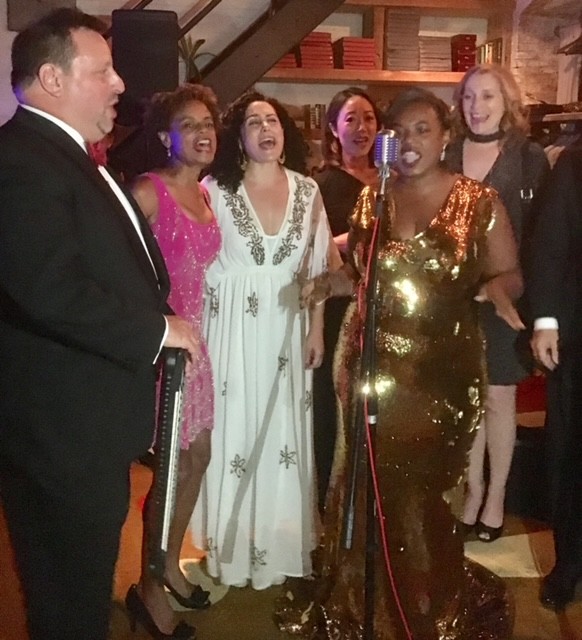Tell us a little about yourselves, your hometowns, and your majors and graduation years.
- Johnny Lloyd: Asheville, NC; International Relations, 2011. I’m a playwright and producer based in Manhattan, NY. I am Producing Director for InVersion Theatre and currently an MFA Candidate in Playwriting at Columbia University studying under Lynn Nottage and David Henry Hwang.
- Rebecca LeVine: Longmont, CO; English, 2012. I live in Brooklyn and work in business development for an ebook startup. I also do some freelance graphic and web design work.
- Will Steinberger: Philadelphia, PA; English, 2011. I’m a theatre director, which means Johnny, Rebecca, and I have a baby together, called InVersion Theatre, that has produced seven full length plays since graduating from Penn, as well as numerous events, short plays, and assorted theatrical happenings. I also work often as an assistant director, dramaturg, and producer/arts administrator, mainly in New York, where I live.
What groups were you involved with during your time at Penn?
- ALL: INTUITONS!!!!
- JL: Counterparts and Mortar Board and a bunch of other TAC-e groups.
- RL: I dabbled in various activities, but TAC-e was my main thing, mostly acting, some directing, a bit of prop designing (prop designing is the best). I’m proud-slash-frightened to say I did at least one production every semester.
- WS: PennQuest, Friars.
How do you feel like the arts at Penn shaped or affected your career paths?
- JL: I really didn’t realize I could go into the arts until I was at Penn. Being able to create relationships with my fellow classmates opened up what theater meant for me and provided connections, friendships, and collaborators that have lasted through today.
- RL: Doing theater was too magical to ever give up completely.
- WS: I met Johnny and Rebecca, and I wouldn’t be making theatre the way I am today if it weren’t for the relationships I have with them. Penn also has a phenomenal DIY ethos, which encourages those scrappy enough to make theatre.
What are your favorite arts-related memories from your time at Penn?
- JL: I’m not allowed to say the parties, right?
- RL: Does that mean I’m not allowed to say the parties either? In all seriousness though, quite a few of my closest friends today are people I did shows with at Penn. Over the course of six or eight weeks of rehearsals, you spend all this time together, you have all these emotional experiences, you’re collaborating on this unique and beautiful thing. And you laugh endlessly, even (especially?) in rehearsal rooms for very, very dark shows.
- WS: Definitely the parties.
How did you start InVersion Theatre? What did that process look like?
- JL: The way I remember it, Will and I were living together and wanted to do a show together after graduating, and because iNtuitons had a relationship with Philly Fringe, we felt very comfortable doing a show in that festival. Rebecca came on soon after (as did another one of our college collaborators, Reni Ellis, who was our company manager for our first show). And after that, we kind of just kept on making plays together. It’s been easy because we’ve had a working relationship for ten years, but also because we would hang out even if we weren’t working together constantly.
- RL: I was a year behind Johnny and Will at Penn (a fact I remind them of often), so I was a senior when they were getting InVersion off the ground. In the spring of 2012, Will asked me if I had the time/interest to dramaturg their production of Miss Julie. Seeking any excuse to put off writing my thesis, I eagerly signed on. Following graduation, I realized just how little I wanted to give up doing theater with my friends, so at some point in there, I finagled my way into the role of Official InVersion Dramaturg. Seven years later, here we are!
- WS: It was a lot more like what we did together at Penn then unlike what we did together, which is a credit to how TAC-e and the University as a whole prepared us for art-making.
What is the key to your success as a team? Do you get on each other’s nerves at all?
- JL: When we’re at our best, we’re honest with each other about how we feel and what we want to do. You can’t not get on your collaborators’ nerves, but you can be honest about how you’re feeling and learn how to listen instead of trying to bury those feelings or taking feedback personally, and I think a lot of our success is because we’re constantly working to be honest and open in our communications.
- RL: Weird question. Will Steinberger, Johnny Lloyd, and Rebecca LeVine have never gotten on anyone’s nerves, ever.
- WS: Cry in public, not private. That’s our rule.
What is InVersion Theatre up to now and do you have individual upcoming projects you’re working on?
- ALL: We’re gearing up for round 3 of our We Read Books series in partnership with The Tank, in which we commission 6 playwrights to create 10-minute plays inspired by a classic text we’ve selected (Beowulf and Shirley Jackson’s “The Lottery” so far). We’re also at work on a new app-play about environmental catastrophe, set in Brooklyn’s Prospect Park. Oh, and we’re writing an original musical adaptation of Dracula, set in Silicon Valley, with music/lyrics by Andrew Underberg, who did not go to Penn.
- WS: I’m directing a play at Columbia right now and producing an off-Broadway play in the fall.
What is a piece of advice you would give to a student who is interested in pursuing the arts beyond their college career?
- JL: Penn is small. T
he world is big. Get ready for rejection, and learn how to welcome it. - RL: Creating and presenting art in the real world almost always requires money–for rehearsal and performance spaces, for costumes and sets and my beloved props, for marketing and publicity, for the labor of all the people working alongside you. At Penn, we were incredibly fortunate to have spaces and budgets that appeared as if by magic and the expertise of University employees whose salaries weren’t our responsibility. We got to imagine that money and art-making were unrelated–which, outside a supportive institution like Penn, is not remotely the case. You spend a lot of time fundraising. You have to ask a lot of your supporters. I’d advise someone seeking a career in the arts to be ready for that.
- WS: Remake the art market; don’t let it remake you. In other words, don’t lose the spark that got you jazzed about your work in the first place.
Why are the arts important to you?
- JL: When you’re in the arts, you don’t just get to show the human condition–you get to interpret it and take things that you think might just apply to you and find out that they actually apply to so many people. And opening up and finding common ground with others through such a vulnerable process is so inspiring and exciting.
- RL: We live in dark times. Making and experiencing and thinking about art gets us a little closer to the light.
- WS: Nothing matters more than meaningful personal encounters. Art sculpts the spaces and experiences in which these encounters happen.




